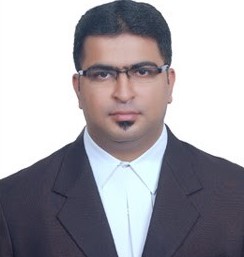
Can a wife get 50% of the net worth of Husband as alimony?
In older days the principle of “unity of personality” was in practice for the couples in marital relationship, where all the assets were in the name of the husband, who was a provider for all the needs of the wife and children. When men chose to divorce their wives, they were asked to provide financial support to their wives so as not to render the wives vagrant. The financial support thus given is termed alimony and it is constantly being evolved through the changes occurring in the societal order. The question arises when we apply the concept of alimony to the current scenario where women can own property, they work and have enough earnings to sustain themselves, how much does a man have to shell out in divorce?
At the outset, the Courts in India consider the facts pertaining to the case in hand, the details provided by the parties are the main source of information and then applicable precedents are considered where the principles laid are applicable to the circumstances of the case.
Concept of 50/50 split outside India
A 50/50 split is a common starting point for dividing marital assets in the UK, however it is not a strict rule and depends on the specific circumstances of the divorce. Hence 50/50 split of marital assets is not a guaranteed outcome. Courts consider the needs of both the spouses, their income and earning abilities and divide the assets to achieve a fair result and clean break for the spouses. Apart from asset division, spousal maintenance which is a form of financial support that meets the needs of the less affluent spouse.
In the US, the division of assets is based on the State laws. Generally assets acquired during the marriage are considered marital property and divided between the partners. A judge considers various factors, including the length of the marriage, the financial needs of each spouse, their income and ability to earn, and each spouse’s contribution to the marriage. Alimony (or spousal support) is a payment from one spouse to the other for financial support after a divorce, and it is separate from the division of assets.
Thus, 50% of the net worth as asset division or alimony is not a standard practice in the US or UK. Courts consider many factors mainly earning capabilities of the parties, length of the marriage, contribution of each spouse to the marital assets, financial condition of the parties and so on, while trying to achieve fair settlement which provides for future needs and financial independence of the spouses.
Can a wife get 50% of assets as alimony in India?
There is no exclusive statute or provision in the matrimonial laws that guarantees 50% of the matrimonial assets to the wife in the event of separation. In the absence of a strict formula, the court decides each case based on the circumstances and financial realities of the spouses. The quantum of maintenance or alimony arrived at is based on many factors.
RECENT JUDGEMENT
A judgement delivered by the Honorable Supreme Court Judges B V Nagarathna and Pankaj Mithal on December 19, 2024 clarifies the stand on whether 50% of net worth to be granted as maintenance to the spouse
Case Overview
This case involved a transfer petition filed by a wife to move a divorce case from a court in Bhopal to Pune. However, the Supreme Court used its extraordinary powers under Article 142 of the Constitution to dissolve the marriage on the ground of irretrievable breakdown and settle all related disputes, including alimony and criminal cases.
Key Facts
- Marriage: A second marriage for both, solemnized on July 31, 2021.
- Duration of Cohabitation: The court found they lived together for only about 3-4 months out of the total marriage period. The husband, a US citizen, frequently traveled abroad.
- Litigation History: The marriage was marred by extensive litigation:
- The husband filed three divorce petitions.
- The wife filed two FIRs against the husband and his father, including serious charges under Sections 354, 376, 377, 498A IPC, and the IT Act.
- The husband was arrested at the Mumbai airport based on a Look Out Circular and spent a month in jail.
- The husband’s father filed proceedings to evict the wife from the matrimonial home.
- Mediation: Multiple attempts at mediation, including by a retired Supreme Court judge, failed.
Core Legal Issue
Whether the Supreme Court should exercise its power under Article 142 of the Constitution to grant a decree of divorce on the ground of irretrievable breakdown of marriage, even though the wife opposed it.
Court’s Analysis & Decision
1. On Irretrievable Breakdown of Marriage
The Court applied the principles laid down in the Constitution Bench precedent of Shilpa Sailesh vs. Varun Sreenivasan 2023 5 SCR 165. It concluded that the marriage had irretrievably broken down based on:
- Extremely short period of actual cohabitation (3-4 months).
- Acrimonious and multiple litigations between the parties, including serious criminal charges.
- The husband’s arrest and incarceration for a month, which shattered any possibility of reconciliation.
- Failed mediation attempts.
- The husband’s categorical refusal to continue the marriage.
- No children were born from the wedlock.
The Court held that continuing the “façade of this broken marriage” would only cause further injustice and hardship to both parties.
2. On Grant of Divorce under Article 142
The Court emphasized that the power under Article 142 is discretionary and used to ensure “complete justice.” It is not necessary to prove which spouse was at “fault.” Instead, the Court takes a holistic view of the relationship’s complete failure. Given the facts, the Court found it a fit case to dissolve the marriage.
3. On Permanent Alimony
The Court considered the report from the Family Court in Pune, which was tasked with determining alimony. The petitioner averred before the Family Court, Pune that the respondent divorced his first wife and gave her 50% of his net worth, which was around Rs.500 crores, in addition to a house in USA, and therefore, the petitioner may be paid permanent alimony in the same manner as was given to the first wife and as per the status of the respondent.
The respondent husband stated that the present marriage between the parties was for a short duration of only three months, during which no marital assets were created, unlike his previous marriage where his ex-wife had contributed to building the assets of the respondent and thus she was entitled to a stake in those assets. He stated that on the contrary, the criminal cases filed by the petitioner herein have led to a further loss of his business.
The court also noted that the respondent had obtained a decree of divorce from his first wife on 09.11.2020. The said marriage had subsisted for almost two decades and he has two children from his first marriage. Thus the court ordered that
- The wife, a well-educated post-graduate, had her own sources of income, a rented-out flat, and significant assets.
- The Court rejected her demand for alimony equal to the share given to the husband’s first wife (which was from a 19-year marriage with children and shared assets).
- The Pune court had recommended ₹2 lakh per month or a lump sum of ₹10 crores.
- The Supreme Court enhanced this to a lump sum of ₹12 crores to account for the wife vacating the properties and to serve as a full and final settlement for all claims. The husband was ordered to pay this amount within one month.
4. Quashing of Criminal Cases
As part of doing “complete justice” and to end all litigation emanating from the broken marriage, the Supreme Court quashed all criminal cases (both FIRs) filed by the wife against the husband, his father, and his employee.
5. Vacation of Property
The wife was directed to vacate the flats belonging to the husband’s father in Pune and Bhopal within two months of receiving the alimony.
Final Order & Disposition
- The husband’s application under Article 142 was allowed.
- The marriage between the parties was dissolved by a decree of divorce.
- The husband was directed to pay the wife a lump sum permanent alimony of ₹12 crores.
- All criminal proceedings arising from the wife’s FIRs were quashed.
- The wife was directed to vacate the husband’s father’s properties.
- The original transfer petition was disposed of as infructuous.
Summary in a Nutshell
The main legal principle here is utilizing the provision under Article 142 to dissolve a broken marriage when there are prima facie facts pointing out that there is no reconciliation possible. In this article as we are focusing on whether 50% of the husband’s assets be given to the wife, the judgement clearly states that for a marriage that lasted only a couple of years with cohabitation of 3-4 months the wife would not get 50% of husband’s net worth. It is justified when there is a long term marriage with children and both the spouses have worked together to build up the assets. For an acrimonious marriage where there were only fights and accusations topped with criminal cases and other cases on each other, and no matrimonial assets created during the course of marriage, it does not justify dividing the assets of a spouse.
For the complete judgement click here.

Advocate Kiran S R – A highly skilled, passionate, dedicated advocate, with vast wealth of knowledge, professionalism, ethical approach and expert skills. One of the sharpest legal mindset brings the best principles of legal practice to the forefront. A qualified Engineer turned Advocate. His passion, dedication and vision to help and assist his clients achieve the best results is his driving force.

